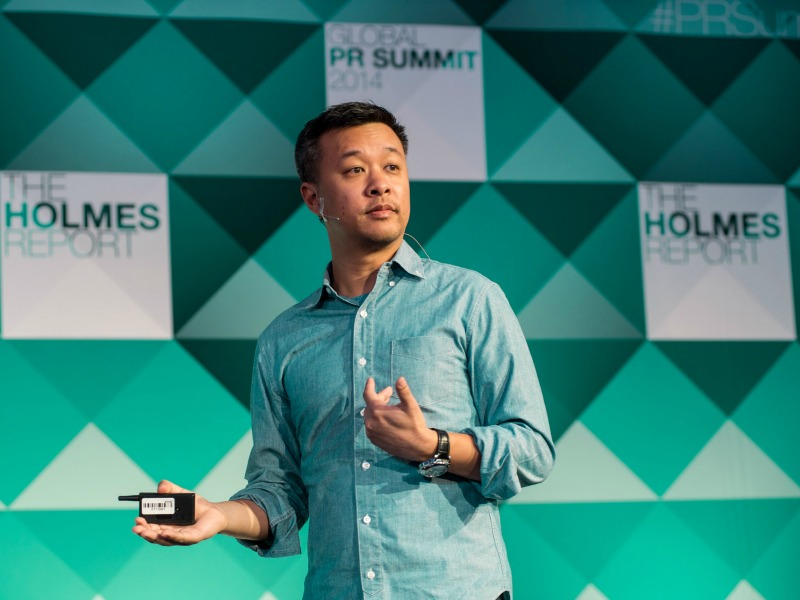Arun Sudhaman 29 Oct 2014 // 2:30PM GMT

MIAMI—There are six key principles that brands should be aware of if they hope to capitalise on the passion that consumers — particularly millennials — have for music, delegates heard at day two of the Global PR Summit today in Miami.
The six learnings were based on research conducted by Columbia Music, which polled 30k consumers in the US, and also surveyed people in the UK, Brazil and China, in a session led by Citizen Relations GM Chris Chamberlin.
Columbia Music was represented on stage by strategic marketing VP Elliot Lum, who noted that brands are expected to spend "somewhere near $2bn" on music sponsorships alone next year.
Lum believes music is one of the key ways to connect with millennials, given that they listen to nine hours of music per day, according to the study. "We think that there's a business opportunity as you guys are talking to millennials," he said.
19% of millennials, in particular, are considered 'fanatics', compared to 11% of the general population. More than 50% of millennials, furthermore, are fanatics or 'enthusiasts', reflecting heightened interest in music and specific opportunities for brands.
The first principle brands need to be aware of is that 'discovery powers word of mouth'. "People will share whether they like it or don't like it," said Lum.
Second, brands should be aware that 'investing in an artists is investing in the lifestyle of that artist,' which brings some risks but also considerable opportunities when it comes to building fan communities.
"Artists have got really smart at building their own tribes," said Lum. "We're continually trying to create experience that latches that fan onto that particular artist."
Third, a point that will appeal to many PR people: 'authenticity matters more than you think.' "The bar is very high in music," explained Lum. "These millennials can really sniff out inauthencity."
Fourth, Lum advised brands to "understand what music 'language' you need to use," pointing out that there is considerable diversity in the ways in which people listen to music throughout the day.
Fifth, brands should 'define strategy before picking artists'. Lum believes too many brands do not necessarily think through their music sponsorship and how it ties into their overall business objectives. He used Taco Bell as a good example of a company that has used its 'Live Mas' brand strategy to drive its 'Feed the Beat' music platform.
And sixth, Lum advised brands to 'have fun, really'. Unsurprisngly, campaigns are far more contagious when they are humourous and genuinely interactive.


































.jpg)





.tmb-135x100.jpg)











